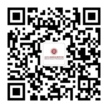
马京晶
-
电话:010-62756573
邮件:jingjingma@nsd.pku.edu.cn
教授综述
马京晶是北京大学国家发展研究院的管理学副教授(长聘)、木兰学者,北大全球女性领导力研究中心主任。她于2015年在凯洛格商学院市场营销系获取博士学位。她的主要研究领域包括消费者行为与决策,公益行为与决策,心理健康与幸福。马京晶的研究成果曾被发表在世界顶尖级学术期刊上,其中包括消费者研究杂志(Journal of Consumer Research), 营销研究杂志(Journal of Marketing Research), 消费者心理学杂志(Journal of Consumer Psychology)和哈佛商业评论(Harvard Business Review)。马京晶的学术成果曾被多家权威媒体报道,其中包括福布斯、世界经济论坛、华尔街日报 、当代心理学、新华社、人民日报等。
现任
教授的课程
Marketing Management、Consumer Behavior、Marketing Research
研究领域
教育背景
Ph.D., Marketing/市场营销, 2015
M.S., Marketing/市场营销, 2012
Kellogg School of Management/凯洛格商学院, Northwestern University/西北大学, USA
M.S., Management/管理学, 2008
Anderson School of Management/安德森商学院, UCLA, USA
M.S., Economics/经济学, 2006
B.S., Economics/经济学, B.A., History/历史, 2003
Peking University/北京大学, Beijing, China
工作经历
业界工作经历主要集中在市场研究和数据分析,包括消费者和市场细分、消费者终身价值和消费者流失分析、新产品和服务设计、销售组合模型、定价与促销、联合分析、选择模型、潜在组模型、结构方程模型、路径模型、实验与准实验测试。 研究方法主要包括实验、准实验、实地实验、IAT、眼动分析、二手数据分析、采访、讨论组、问卷、内容分析、模型、综合系统分析。曾工作过的营销类公司(部门)包括In4mation Insights (Boston), Ogilvy and Mather, Shell China Ltd., and Amway。客户包括P & G, MillerCoors, Monitor Group, Microsoft, Estee Lauder, Johnson and Johnson, Fidelity, iRobot, etc.
PROFESSIONAL SERVICE .
Reviewer, Journal of Consumer Psychology, 2017-present
Reviewer, Journal of Consumer Research, 2013-present
Conference Reviewer, Association for Consumer Research Conference, 2011, 2013-present
Conference Reviewer, Society for Consumer Psychology Conference, 2013-present
PROFESSIONAL AFFILIATIONS .
Association for Psychological Science, 2013-present
Society for Consumer Psychology, 2010-present
American Marketing Association, 2008, 2014-present
Association for Consumer Research, 2006-present
Society for Judgment and Decision Making, 2006-present
TEACHING
Seminar in Consumer Behavior: Judgment and Decision Making
Doctoral Seminar (in English)
The purpose of this seminar is to provide selective coverage of the research carried out in the area of judgment and decision making. We will focus on the theories relevant to understanding how people make choices in a variety of settings. For each topic, we will attempt to determine the main ideas and research issues which have driven work in that area; what we have learned to date; and what gaps exist in our knowledge. Class discussion will include conceptual topics, which deal with substantive issues in the domain of judgment and decision behavior, and research methodologies, which involve a discussion of the process of generating academic research. Coursework consists of scholarly readings, class presentations, and a term paper (research proposal).
Marketing Research
EDP Class (in Chinese)
本课程的主要目标是为学员讲授在优良管理的公司内所使用的市场调研的基本方法。课程主要为实际进行市场调研、负责决定市场调研方向和范围的经理们设计。在课程中,学员可以学习到不同的市场调研设计方法及数据收集和分析方法。课程讲授的内容重视对分析结果的使用而不是数据的演算。学员可以在丰富的课程案例中学习市场调研的方法以及消费者行为研究的理论。本课程旨在帮助经理们了解自己在制定营销决策中如何选择合适的调研方法进行系统的信息收集和分析,以及如何理解和评估一份市场调研的潜在的贡献和局限性。 本课程的主要内容包括: 1)从一个失败的市场调研案例讲述市场调研所应该具有的正确思维方法。 2)从消费者信息传递的角度,分析传统的市场调研方法和互联网时代的新型调研方法的区别与联系。 3)系统分析各种定性和定量研究方法所应该注意的问题,特别是各种方法的适用范围和优缺。 4)介绍如何合理运用市场研究中常用的统计手段(例如,因子分析、聚类分析)进行市场细分和品牌定位分析。 5)介绍如何正确运用因果性调研方法测试不同营销策略的有效性(例如,促销,广告,商标设计和陈列设计)。 6)互联网时代营销者可以使用的新型调研方法, 例如,眼动追踪分析,面部表情分析,潜在偏好分析。 Note: This course is partly adapted from Professor Michal Maimaran's class on Marketing Research at Kellogg School of Management.
Consumer Behavior
MBA Class (in English)
An essential component of marketing is consumer insight. A consumer insight explains why a particular person or group buys a particular product or service. A good consumer insight will drill deeper than surface observations of overt behavioral patterns into the realm of psychological processes, such as goals and motives. Informed by a rigorous consideration of contemporary psychological science, including survey tools, consumer neuroscience, and ethnography, this course uses a framework centering on the discrete cognitive processes that unfold in response to the marketing mix to give marketers a strategic advantage in uncovering consumer insights that will create sustained value and drive growth. This course is organized around a framework that specifies the sequence of the consumer decision journey (e.g., attention, interpretation, memory, attitude, choice, loyalty) that intervene between the marketing mix (input) and purchase behavior (output), and covers both metrics for assessing each step (i.e., methods) and also drivers for influencing each step (i.e., underlying reasons). A mix of large cases, mini-cases, lectures, and marketing research tools will be used in class. Note: This course is adapted from Professor Neal Roese' class on Consumer Behavior at Kellogg School of Management.
Marketing Management
MBA Class (in English)
This course is intended to introduce students to the essentials of marketing and offer them a strategic perspective of marketing management, focusing on the process of developing a marketing strategy and designing an optimal marketing mix to carry out the chosen strategy.Specifically, this course aims to introduce the key elements of marketing strategies (segmentation, targeting, and positioning) and tactics (product, service, brand, price, communication).
荣誉
The Audience Choice Award for research with Aaron Brough, Jim Wilkie, Mathew Issac, and David Gal, The Qualtrics Insight Summit, 2016
Fellow, AMA-Sheth Foundation Doctoral Consortium, 2014
Fellow, Haring Symposium, Indiana University, 2013
TGS Travel Grant, Northwestern University, 2011, 2012
Best Student Poster Award, SJDM, Seattle, WA, 2011
Fellowship, Kellogg School of Management, Northwestern University, 2010-2015
Anderson Fellowship, UCLA Anderson School of Management, 2006, 2007
GMAT 高分奖, 北京, 中国, 2006
挑战杯论文奖, 北京大学, 中国, 2005
光华研究生奖学金, 北京大学, 中国, 2004
杨乃英奖学金, 北京大学, 中国, 2002
光华本科生奖学金, 北京大学, 中国, 2001
新生奖学金, 北京大学, 中国, 2000
学术论文
案例发表.
1) Yang, Haiyang, Jingjing Ma, Neal Roese, and Amitava Chattopadhyay (2021), “Market Disruption Strategies: The Transformation of Xiaomi,” INSEAD Case No. 6608; INSEAD Teaching Note No. 6608. https://publishing.insead.edu/case/xiaomi
2) Yang, Haiyang, Jingjing Ma, Neal Roese, and Amitava Chattopadhyay (2021), “Market Disruption Strategies: The Transformation of Xiaomi,” Harvard Case No. IN1717; Harvard Teaching Note No. IN1717. https://hbsp.harvard.edu/product/IN1717-PDF-ENG
3) Yang, Haiyang, Jingjing Ma, Neal Roese, and Amitava Chattopadhyay (2021), “市场颠覆战略:小米的转型之路”INSEAD Case No. 6608 (中文版). https://publishing.insead.edu/case/market-disruption-strategies-transformation-xiaomi-chinese
代表性论文发表(* 通讯作者).
1) Yang, Haiyang and Jingjing Ma* (2022), “Post-COVID-19 Distress and Unhealthy Consumption Behavior,” Journal of Mental Health.
2) Ma, Jingjing, Yuanjie Zhao, and Zichuan Mo* (2023), “Dynamic Luxury Advertising: Using Lifestyle vs. Functional Advertisements in Different Purchase Stages,” Journal of Advertising, 52(1), 39-56.
3) Yang, Haiyang, Jingjing Ma, and Amitava Chattopadhyay (2021), “How Xiaomi Became an Internet-of-Things Powerhouse,” Harvard Business Review.
Harvard Business Review (Russian Edition): “Как Xiaomi стала IoT-гигантом”
Harvard Business Review (Korean Edition): “샤오미가 사물인터넷 시장을 석권한 방법”
Harvard Business Review (Chinese Edition): “小米成為物聯網巨擘的關鍵策略”
4) Yang, Haiyang and Jingjing Ma* (2021), “Factors Associated With Chinese Adults’ Vaccine Acceptance,” JAMA Health Forum, 2(7), e211466.
5) Yang, Haiyang and Jingjing Ma* (2021), “Relationship Between Wealth and Emotional Well-being Before, During, versus After a Nationwide Disease Outbreak: A Large-scale Investigation of Disparities in Psychological Vulnerability Across COVID-19 Pandemic Phases in China,” BMJ Open, 11(6), e044262.
6) Yang, Haiyang and Jingjing Ma* (2021), “How the COVID-19 Pandemic Impacts Tobacco Addiction: Changes in Smoking Behavior and Associations with Well-being,” Addictive Behaviors, 119, 106917.
7) Ma, Jingjing, Zichuan Mo*, and David Gal (2021), “The Route to Improve the Effectiveness of Negative PSAs,” Journal of Business Research, 123, 669-682.
8) Yang, Haiyang and Jingjing Ma* (2020), “How an Epidemic Outbreak Impacts Happiness: Factors that Worsen (vs. Protect) Emotional Well-being during the Coronavirus Pandemic,” Psychiatry Research, 289, 113045.
9) 马京晶,莫子川,石晓伟 (2020),“负面社会推理对消费者购买行为的影响,” 南开管理评论, 23(2), 155-166.
10) Goldsmith, Kelly*, Caroline Roux, and Jingjing Ma (2018), “When Seeking the Best Brings Out the Worst in Consumers: Understanding the Relationship between a Maximizing Mindset and Immoral Behavior,” Journal of Consumer Psychology, 28(2), 293-309.
11) Brough, Aaron R.*, James E. B. Wilkie, Jingjing Ma, Mathew S. Issac, and David Gal (2016), “Is Eco-Friendly Unmanly? The Green-Feminine Stereotype and Its Effect on Sustainable Consumption,” Journal of Consumer Research, 43(4), 567-582.
12) Ma, Jingjing* and David Gal (2016), “When Sex and Romance Conflict: The Impact of Sexual Imagery in Advertising on Preference for Romantically Linked Products and Services,” Journal of Marketing Research, 53 (4), 479-496.
13) Ma, Jingjing* and Neal J. Roese (2014), “The Maximizing Mind-Set,” Journal of Consumer Research, 41 (1), 71-92.
14) Ma, Jingjing* and Neal J. Roese (2014), “The Danger of Touting a Product as ‘the Best’,” Harvard Business Review, 92 (10), 28.
15) Ma, Jingjing* and Neal J. Roese (2013), “The Countability Effect: Comparative versus Experiential Reactions to Reward Distributions,” Journal of Consumer Research, 39 (6), 1219-1233.
16) Ma, Jingjing* and Neal J. Roese (2013), “The Surprising Power of (a Lack of) Numbers,” The European Financial Review (Lead Story), 40-42.
其他论文发表.
17) Ma, Jingjing*, Zichuan Mo, Yuanjie Zhao (2021), “When Lifestyle Advertising Hurts Luxury Brands”, Advances in Consumer Research, v.49.
18) Ma, Jingjing*, Yu Lin, and Danit Ein-Gar (2019), “Charitable Maximizers: the Impact of the Maximizing Mindset on Charitable Behavior”, Advances in Consumer Research, v.47, 760-761.
19) Ma, Jingjing*, Kent Grayson, and David Gal (2017), “Increasing PSA Effectiveness: Two Routes from Self-Threat to Message Acceptance,” Advances in Consumer Research, v.45, 764-765.
20) Ma, Jingjing* and David Gal (2016), “He’s Just Not That Into Anyone: The Impact of Sex Fantasy on Attraction,” Advances in Consumer Research, v.44, 545-545.
21) Ma, Jingjing*, Ryan Hamilton, and Alexander Chernev (2015), “The Impact of Usage Frequency on Lifestyle Branding,” Advances in Consumer Research, v.43, 142-146.
22) Ma, Jingjing*, Ying Wang, and Neal J. Roese (2014), “The Impact of the Maximizing Mindset on Decision Time,” Advances in Consumer Research, v.42, 590-591.
23) Ma, Jingjing* and Neal J. Roese (2013), “The Maximizing Mindset,” Advances in Consumer Research, v.41, 181-185.
24) Ma, Jingjing* and Neal J. Roese (2012), “The Countability Effect: Comparative versus Experiential Reactions to Reward Distributions,” Advances in Consumer Research, v.40, 106-111.
25) Ma, Jingjing*, Ryan Hamilton, and Alexander Chernev (2012), “The Unexpressed Self: The Impact of Restricting Freedom of Self-Expression on Brand Preferences,” Advances in Consumer Research, v.40, 95-100.
26) Ma, Jingjing* and Shi Zhang (2009), “Choosing Between American and Chinese Brands,” Advances in Consumer Research, v.36, 896-897.
27) Ma, Jingjing* and Shi Zhang (2008), “On the Compatibility of Orientation, Task, and Preference: The Role of Brand Information,” Advances in Consumer Research, v.35, 895-896.
28) Ma, Jingjing*, Lee Zhang, and Xinxin Ma (2007), “Affect without Cognition,” Advances in Consumer Research, v.34, 389-391.
29) 马京晶*、张实、张黎 (2009), “品牌信息对消费者目标取向、决策任务和产品类型偏好三者间匹配性的影响作用,” 营销科学学报, 5 (1), 13-26.
30) 马京晶*、马欣昕、张黎 (2008), “选择与放弃中对产品实用性和享乐性的不同偏好-以电脑光盘和音乐CD为例,” 营销科学学报, 4 (1), 107-119.
31) 张黎、马京晶* (2006), “消费经验、文化意含与Fishbein模型,” 营销科学学报, 2 (3), 30-43.



.png)




